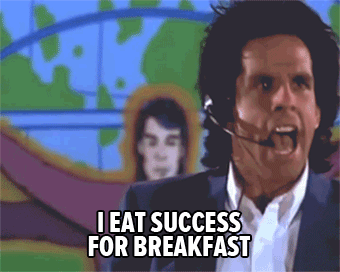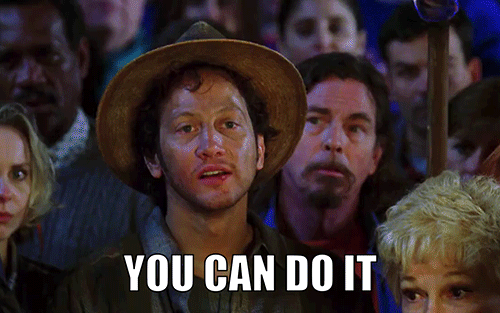"Whether you think you can or you can't, you're right." -Henry Ford
Your thoughts are the singular most important predictor of your professional success.

Your thought dictates your behavior. Your behavior then dictates your emotional feelings. This endless cycle repeats itself over and over until the day that you die.

First Things First
Let's start with an easy example. Like this cute wittle kitty, your throat is dry.
Your thought: "I need a drink." Your behavior: Get a drink. Your feeling: Satisfaction.
You have then completed that cognitive cycle and ready to move on to your next need.

Example 1: Kylie Has Positive Thoughts
Boss tasks Kylie with increasing her team's productivity by 20% this quarter.
Thought: "I can do this."
Behavior: Research, create a well-developed plan, and gathers her team to implement.
Feelings: Poised, capable.
Kylie is then ready to move on to her next need in business, quickly.

Example 2: Kylie has Negative Thoughts
Boss tasks Kylie with increasing her team's productivity by 20% this quarter.
Thought: "I can't do this, I'm not capable."
Behavior: Focuses on other tasks, avoids addressing it
Feelings: Inadequate, nervous, afraid
Kylie becomes STUCK in this cycle, with a snowball effect. These thoughts continually return, she keeps avoiding what she needs to do, and her feelings become more intense.

The singular difference between those two examples is one thought.
So how do we change that thought and eat success for breakfast Mr. Stiller?
Identify your thought(s) when you are stuck at work
Identify the accompanying behavior pattern and feelings
Fill out your cognitive triangle accordingly. (see top of article)
Challenge your thought at the top of the triangle
a. Does it make rational sense? What evidence do I have it's true or not true?
b. What would I tell my friend at work if he/she had this thought?
c. Have I been successful in similar challenges before? Why can't I do it again?
5. Restructure your thought accordingly. "I can do this, I am capable."
a. If you truly are not capable of something, ask for support!
6. Watch as your new thought/support improves your behavior and your feelings
7. Get unstuck! Allow yourself to move on to the next business need.
8. Be on the lookout for the negative thoughts to return. Challenge them and restructure!

The science behind your success is in your thoughts. Be aware of them, address them.
This article was created with knowledge and application of the Cognitive Behavioral and Gestalt Models.
Did you find this helpful? That's what I'm here for. Connect/Shoot me a note on LinkedIn or email me at MichaelThomasJrConsulting@gmail.com
